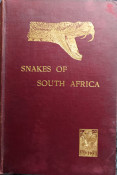(these books are located in the USA)
Facsimile reprints of the Tinsley Brothers, London, 1869 First Edition: 2 volumes: bound by hand in navy blue, with hand-marbled end papers. Map tipped-into each volume; facsimile of original cloth front cover also tipped-into end of each volume. Since the volumes are hand-made they have imperfections, so expect such.
The original first editions are extremely rare, and very expensive.
Travels in Central Africa is based on notes, letters, and journal entries, most written by Kate Petherick, during the journey. John Petherick (1813-82) was a Welsh traveller and trader who travelled extensively in Egypt and Sudan during the 1840s and 1850s; journeys described in Petherick's previous book Egypt, the Soudan and Central Africa (1861).
After two years back in Britain during which Petherick married Katherine Walshe (1827-77), the couple returned to Sudan in 1861. Petherick assumed the role of British consul in Khartoum and was commissioned by the Royal Geographic Society to convey needed stores to the trading station at Gondokoro for the expedition of John Hanning Speke and James Augustus Grant on their return trip from their search for the source of the Nile. The Pethericks travelled up the Nile to Gondokoro with boats and supplies. However, when Speke's arrival became well overdue, the Pethericks headed into the interior on a trading expedition to the Bahr-el-Ghazal and Speke instead accepted the hospitality of Samuel Baker, the great African explorer who the Pethericks found together on their return. Speke never forgave Petherick's absence, and the consul's reputation was badly tarnished. Volume 1 mainly concerns the Nile journey to Gondokoro; volume 2 contains numerous letters as well as details on local flora and fauna that the couple collected during their travels, intended in part to present Petherick's defense. [https://en.wikipedia.org/wiki/John_Petherick]
(we also have up for auction today copies of Speke's, Grant's, and Baker's accounts of what happened)
------------------------------------------------------
Excerpt from Baker's THE ALBERT N'YANZA:
February 15, 1863:
When I first met [Speke and Grant] they were walking along the bank of the river towards my boats. At a distance of about a hundred yards I recognised my old friend Speke, and with a heart beating with joy I took off my cap and gave a welcome hurrah! I hardly required an introduction to his companion, as we felt already acquainted.
At the first blush on meeting them I had considered my expedition as terminated by having met them, and by their having accomplished the discovery of the Nile source; but... Speke and Grant with characteristic candour and generosity gave me a map of their route, showing that they had been unable to complete the actual exploration of the Nile, and that a most important portion still remained to be determined... The natives and the King of Unyoro (Kamrasi) had assured them that the Nile from the Victoria N'yanza, which they had crossed at Karuma, flowed westward for several days' journey, and at length fell into a large lake called the Luta N'zige; that this lake came from the south, and that the Nile on entering the northern extremity almost immediately made its exit, and as a navigable river continued its course to the north. Both Speke and Grant attached great importance to this lake Luta N'zige, and the former was much annoyed that it had been impossible for them to carry out the exploration. As it happened, it was impossible for Speke and Grant to follow the Nile from Karuma:—the tribes were fighting with Kamrasi, and no strangers could have got through the country. Accordingly they procured their information most carefully, completed their map, and laid down the reported lake in its supposed position, showing the Nile as both influent and effluent precisely as had been explained by the natives.
Speke expressed his conviction that the Luta N'zige must be a second source of the Nile, and that geographers would be dissatisfied that he had not explored it. To me this was most gratifying. I had been much disheartened at the idea that the great work was accomplished, and that nothing remained for exploration; I even said to Speke, "Does not one leaf of the laurel remain for me?" I now heard that the field was not only open, but that an additional interest was given to the exploration by the proof that the Nile flowed out of one great lake, the Victoria, but that it evidently must derive an additional supply from an unknown lake as it entered it at the NORTHERN extremity, while the body of the lake came from the south.
February 20, 1863:
On the 20th February [the Pethericks] suddenly arrived from the Niambara, with their people and ivory and were surprised at seeing so large a party of English in so desolate a spot.
On the 26th February, Speke and Grant sailed from Gondokoro [to England].






















